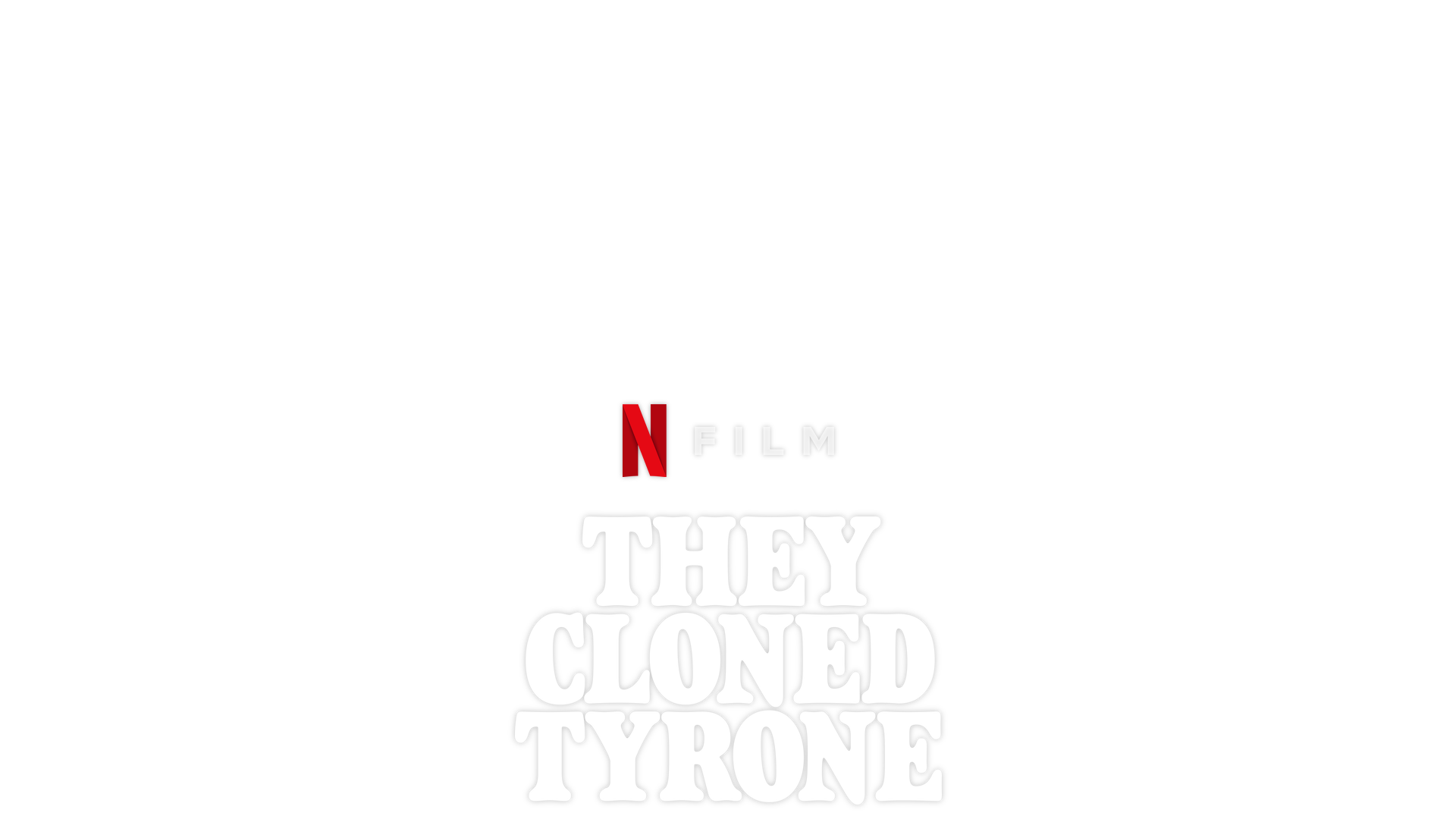Cloned Kanye has become a fascinating topic of discussion in recent years, capturing the attention of fans, critics, and tech enthusiasts alike. With the rise of artificial intelligence and digital cloning technologies, the concept of replicating a public figure like Kanye West—known for his iconic music, bold personality, and controversial statements—has sparked both curiosity and debate. What does it mean to "clone" a celebrity, and how does this phenomenon intersect with advancements in AI? This article dives deep into the world of Cloned Kanye, exploring its origins, implications, and the broader societal impact of digital replication.
The idea of cloning a celebrity like Kanye West may seem like science fiction, but it is becoming increasingly plausible with modern technology. From AI-generated music to virtual personas, the boundaries between reality and digital replication are blurring. Cloned Kanye represents not just a technological marvel but also a cultural phenomenon that challenges our understanding of identity, creativity, and ethics. As we delve into this topic, we will uncover how digital clones are created, their potential applications, and the ethical dilemmas they pose.
In this article, we will explore the various facets of Cloned Kanye, from its technical underpinnings to its cultural significance. We will also examine the implications of digital cloning for the music industry, entertainment, and society at large. By the end of this piece, you will have a comprehensive understanding of Cloned Kanye and its role in shaping the future of digital innovation. Let’s begin this journey into the world of digital replication and its impact on our lives.
Read also:Vegamoviescomph Your Ultimate Guide To Streaming Movies Online
Table of Contents
- Biography of Kanye West
- What is Cloned Kanye?
- The Technology Behind Digital Cloning
- Applications of Cloned Kanye
- Ethical Considerations of Digital Cloning
- Impact on the Music Industry
- Legal Implications of Cloned Kanye
- The Future of Digital Cloning
- Public Reception and Cultural Impact
- Conclusion
Biography of Kanye West
Before diving into the concept of Cloned Kanye, it is essential to understand the man behind the phenomenon. Kanye West, born on June 8, 1977, in Atlanta, Georgia, is one of the most influential figures in modern music and pop culture. Known for his groundbreaking work as a rapper, producer, and fashion designer, Kanye has left an indelible mark on the entertainment industry. His career began in the late 1990s as a producer for artists like Jay-Z and Alicia Keys, but he soon rose to fame with his debut album, The College Dropout, in 2004.
Below is a table summarizing Kanye West's personal data and biodata:
| Full Name | Kanye Omari West |
|---|---|
| Date of Birth | June 8, 1977 |
| Place of Birth | Atlanta, Georgia, USA |
| Occupation | Rapper, Producer, Fashion Designer |
| Notable Works | The College Dropout, Graduation, My Beautiful Dark Twisted Fantasy |
| Awards | 24 Grammy Awards, numerous accolades in fashion and music |
Kanye's influence extends beyond music, as he has ventured into fashion, politics, and philanthropy. His bold statements and controversial actions have often made headlines, but they have also solidified his status as a cultural icon. Understanding Kanye's background and achievements provides context for why the concept of Cloned Kanye has captured the public's imagination.
What is Cloned Kanye?
Cloned Kanye refers to the digital replication of Kanye West using advanced AI and machine learning technologies. This digital clone can mimic Kanye's voice, mannerisms, and creative output, effectively creating a virtual version of the artist. The concept gained traction with the development of AI tools capable of generating music, speech, and even visual representations of public figures. Cloned Kanye is not just a novelty; it represents a significant leap in the field of digital cloning and its potential applications.
How Cloned Kanye Works
The creation of Cloned Kanye involves several steps, including data collection, AI training, and output generation. Here’s a breakdown of the process:
- Data Collection: AI models are trained using vast amounts of data, including Kanye's music, interviews, and public appearances.
- AI Training: Machine learning algorithms analyze the data to identify patterns in Kanye's speech, musical style, and behavior.
- Output Generation: Once trained, the AI can generate new content, such as songs, speeches, or virtual performances, that closely resemble Kanye's work.
This process raises intriguing questions about the nature of creativity and the role of AI in artistic expression. Can a machine truly replicate the genius of a human artist, or does it merely simulate it?
Read also:Who Is Jeremy Dufrene Unveiling The Story Of A Rising Star
The Technology Behind Digital Cloning
The technology behind digital cloning has evolved rapidly in recent years, thanks to advancements in AI, machine learning, and natural language processing. These technologies enable the creation of highly realistic digital replicas of individuals, including celebrities like Kanye West. Below, we explore the key components of digital cloning technology and their role in creating Cloned Kanye.
AI and Machine Learning
AI and machine learning form the backbone of digital cloning. These technologies allow computers to learn from data and make decisions without explicit programming. In the case of Cloned Kanye, AI models are trained on vast datasets containing Kanye's music, interviews, and public appearances. The models analyze this data to identify patterns and generate new content that mimics Kanye's style.
Natural Language Processing (NLP)
Natural language processing is a branch of AI that focuses on the interaction between computers and humans through language. NLP enables Cloned Kanye to generate speech and text that closely resemble Kanye's mannerisms and vocabulary. This technology is also used in virtual assistants and chatbots, demonstrating its versatility and potential applications.
Deepfake Technology
Deepfake technology plays a crucial role in creating visual representations of Cloned Kanye. Deepfakes use deep learning algorithms to superimpose one person's likeness onto another, creating highly realistic videos or images. While deepfakes have raised concerns about misinformation and privacy, they also offer exciting possibilities for entertainment and creative expression.
Applications of Cloned Kanye
Cloned Kanye has numerous potential applications across various industries, from entertainment to marketing. Below, we explore some of the most promising uses of digital cloning technology and how they could impact society.
Music Production
One of the most obvious applications of Cloned Kanye is in music production. AI-generated music can create new songs, remixes, or collaborations that sound like they were created by Kanye himself. This technology could revolutionize the music industry by enabling artists to produce content more efficiently and experiment with new styles.
Virtual Performances
Cloned Kanye could also be used to create virtual performances, allowing fans to experience concerts and events featuring a digital version of the artist. This application is particularly relevant in the era of virtual and augmented reality, where immersive experiences are becoming increasingly popular.
Marketing and Branding
Brands could leverage Cloned Kanye for marketing campaigns, creating advertisements or endorsements that feature a virtual version of the artist. This approach offers several advantages, including cost savings and the ability to tailor content to specific audiences.
Ethical Considerations of Digital Cloning
While the concept of Cloned Kanye is undeniably exciting, it also raises significant ethical concerns. Below, we explore some of the key ethical considerations surrounding digital cloning and its implications for society.
Consent and Ownership
One of the primary ethical concerns is whether public figures like Kanye West have consented to the creation of their digital clones. Without proper consent, digital cloning could infringe on an individual's rights and lead to legal disputes. Additionally, questions arise about who owns the rights to content generated by a digital clone.
Misinformation and Fraud
Digital cloning technology could be used to spread misinformation or commit fraud. For example, a deepfake video of Kanye West could be used to make false statements or endorse products without his knowledge. This potential for misuse highlights the need for regulations and safeguards to protect against malicious use of digital cloning technology.
Impact on Human Creativity
Another ethical consideration is the impact of digital cloning on human creativity. If AI-generated content becomes indistinguishable from human-created content, it could devalue the work of artists and creators. This raises questions about the role of AI in the creative process and whether it should be used to supplement or replace human talent.
Impact on the Music Industry
The rise of digital cloning technology has significant implications for the music industry. Cloned Kanye represents a new frontier in music production, offering both opportunities and challenges for artists, producers, and consumers. Below, we explore how digital cloning could transform the music industry and what it means for the future of creativity.
Increased Efficiency in Music Production
Digital cloning could streamline the music production process by enabling artists to generate content more quickly and efficiently. For example, Cloned Kanye could create new songs or remixes in a fraction of the time it would take a human artist. This efficiency could lead to increased productivity and innovation in the music industry.
New Revenue Streams
Digital cloning also opens up new revenue streams for artists and producers. For instance, virtual performances and AI-generated content could generate income through ticket sales, streaming platforms, and licensing agreements. This diversification of revenue sources could help artists sustain their careers in an increasingly competitive industry.
Challenges for Authenticity
While digital cloning offers many benefits, it also poses challenges for authenticity in music. If AI-generated content becomes prevalent, it could blur the line between human and machine creativity. This raises questions about the value of authenticity in art and whether audiences will prioritize human-created content over AI-generated alternatives.
Legal Implications of Cloned Kanye
The legal implications of digital cloning are complex and multifaceted. As Cloned Kanye becomes more prevalent, it is essential to address the legal challenges associated with this technology. Below, we explore some of the key legal issues surrounding digital cloning and their potential impact on society.
Intellectual Property Rights
One of the primary legal concerns is intellectual property rights. Who owns the rights to content generated by a digital clone? Is it the original artist, the creators of the AI model, or the platform hosting the content? These questions highlight the need for clear legal frameworks to address ownership and copyright issues in the age of digital cloning.
Privacy and Consent
Privacy and consent are also critical legal considerations. Public figures like Kanye West may have limited control over how their likeness is used in digital cloning. This raises concerns about privacy and the potential for misuse of personal data. Legal safeguards are needed to protect individuals from unauthorized use of their digital clones.
Regulation of Deepfake Technology
Deepfake technology, which plays a key role in digital cloning, has raised concerns about misinformation and fraud. Governments and regulatory bodies must establish guidelines to prevent the malicious use of deepfakes while preserving their potential benefits. This balance is crucial to ensuring that digital cloning technology is used responsibly and ethically.
The Future of Digital Cloning
As digital cloning technology continues to evolve, its potential applications and implications are vast. Cloned Kanye is just one example of how this technology is reshaping the entertainment industry and beyond. Below, we explore what the future holds for digital cloning and its impact on society.
Advancements in AI and Machine Learning
Future advancements in AI and machine learning will likely enhance the capabilities of digital cloning technology. More sophisticated algorithms and larger datasets could lead to even more realistic and versatile digital clones. This progress could unlock new possibilities for creativity, entertainment, and communication.
Integration with Virtual and Augmented Reality
The

